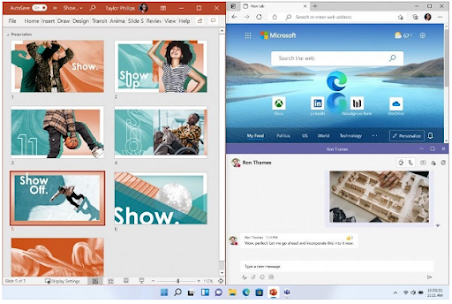Microsoft released its first major update to Windows 11 on September 20th. The update includes new features for productivity, accessibility, security and more.
Provided by: Sarah Tew/CNET
- Improved PC usability
The latest update to Windows 11 makes searching in the Start menu and Quick Settings faster and more accurate. The local news and current affairs news displayed on the widget panel will also be more user-friendly. In October, Explorer will get the long-awaited tab feature.
- More productivity tools
Windows 11 unveiled features aimed at those who multitask and those who want more advanced organizational features. The update makes Snap Layout, which neatly arranges open windows on the desktop, more versatile with improved touch navigation and the ability to snap multiple tabs in the Edge browser.
- New features related to accessibility
Windows 11's built-in screen reader, Narrator, has a more natural voice and improved text-to-speech quality.
In addition, the live caption function, which was previously available for individual apps, will now be available for the entire system. System-wide live captions appear by default at the top of the screen, below the camera, but you can switch the location of the captions to the bottom of the screen or another floating window. In addition, face-to-face conversations can now be transcribed by capturing voice from the microphone.
- "Smart App Control" and Security
According to Microsoft, "Smart App Control" is intended to improve the reliability of downloading apps on Windows 11. This tool blocks untrusted and unsigned apps. These apps are often associated with malware and attack tools. Smart App Control, which predicts whether an app is safe or not, is built on the same artificial intelligence (AI) foundation used in Windows Defender Application Control and is available for both individual and corporate users.
The enhanced Microsoft Defender Smart Screen detects when users try to enter their Microsoft credentials into malicious apps or hacked websites, and alerts them with a warning page.





0 Comments